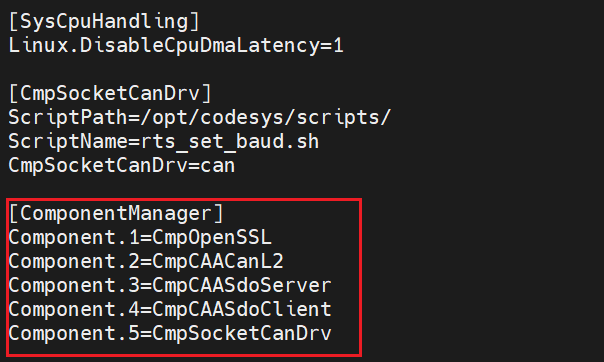CODESYS Standalone Edition License Support CANopen
1 Overview
Introduce the background and scope of standalone CODESYS licensing supporting the CANopen protocol.
1.1 Background
Some users utilizing standalone CODESYS licenses on ED-IPC, ED-HMI, and ED-PLC products require connectivity with other slave devices via the CANopen protocol to enable CANopen communication. To address this requirement, our company has developed scripts supporting CANopen communication, empowering users to implement CANopen-based communication through a Raspberry Pi CODESYS master station.
1.2 Applicability
This application is intended for standalone CODESYS licenses shipped with ED-IPC, ED-HMI, and ED-PLC devices.
2 Configuration Guide
Introducing support for the CANopen protocol on ED-IPC/HMI or ED-PLC devices with an activated standalone CODESYS license.
Preparation:
- The device is powered on and operating normally, with a standalone CODESYS license activated.
- Ensure the device’s
/opt/codesys/scriptsdirectory contains therts_set_baud.shscript.
Steps:
- Obtain the executable script file from the download link: codesys_raspberry_canopen.sh.
- Copy the downloaded script to any directory on the device using a USB drive or SSH remote login.
- Open a terminal command window on the system desktop and run the following command to grant execute permissions to the script.
sudo chmod +x codesys_raspberry_canopen.sh
- Open a terminal command window on the system desktop and execute the following command to run the script.
sudo ./codesys_raspberry_canopen.sh
- After the script runs successfully, check the
CODESYSControl.cfgfile in the/etc/codesyscontroldirectory on the device.
- As shown in the figure below, if the
CODESYSControl.cfgfile contains the[ComponentManager]section, this indicates a successful configuration.

